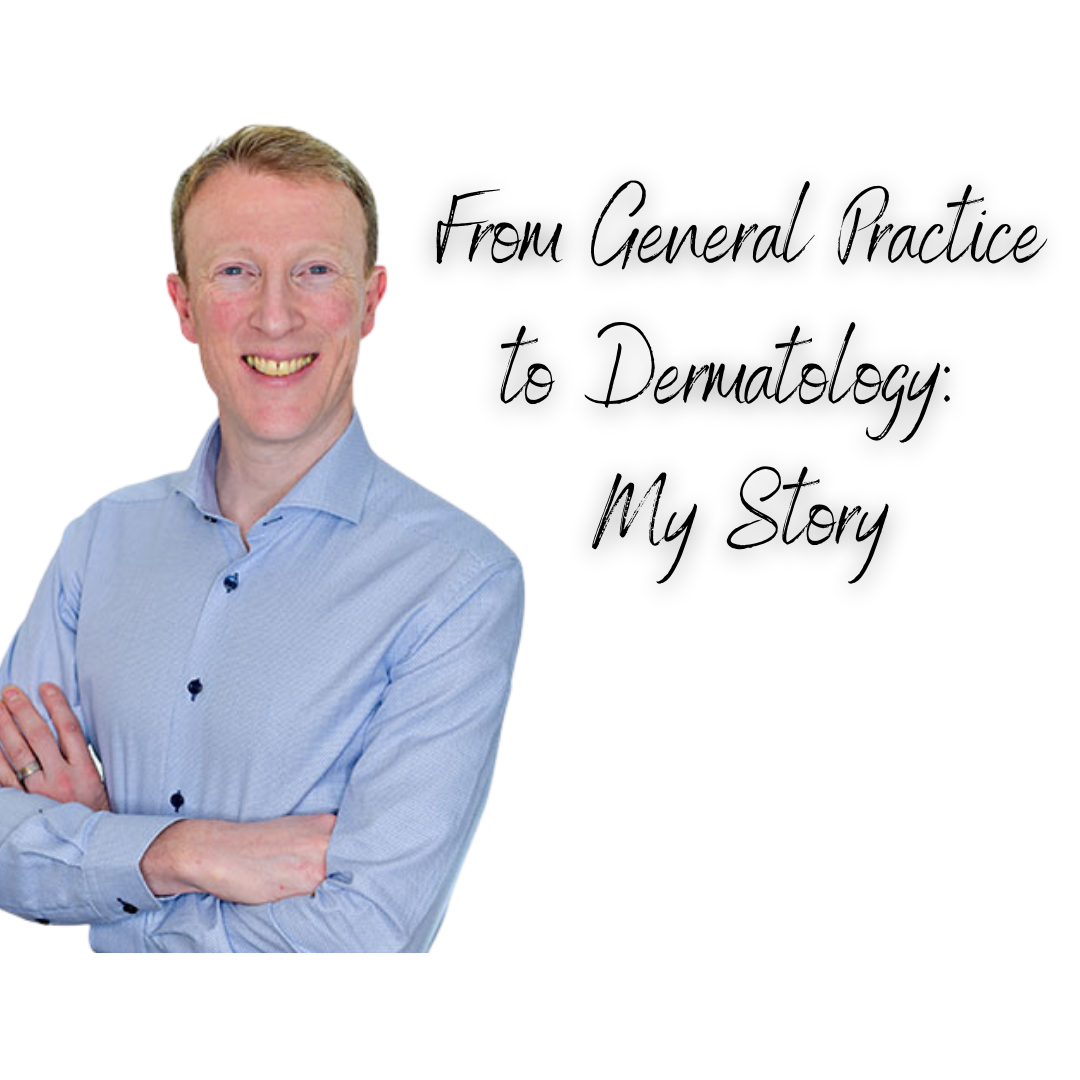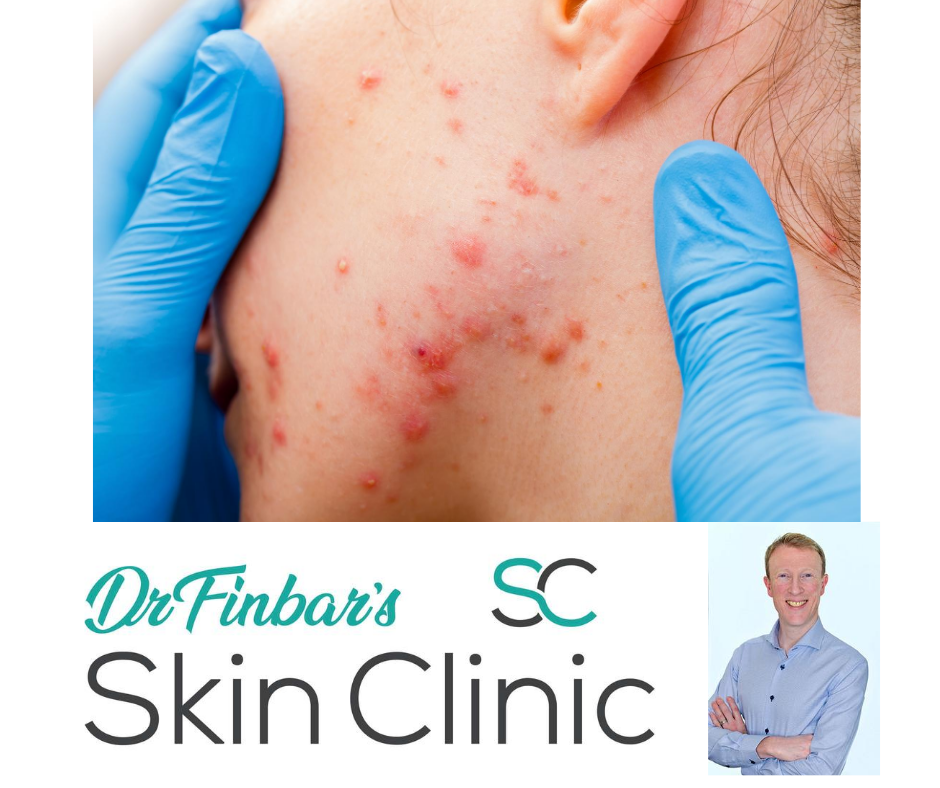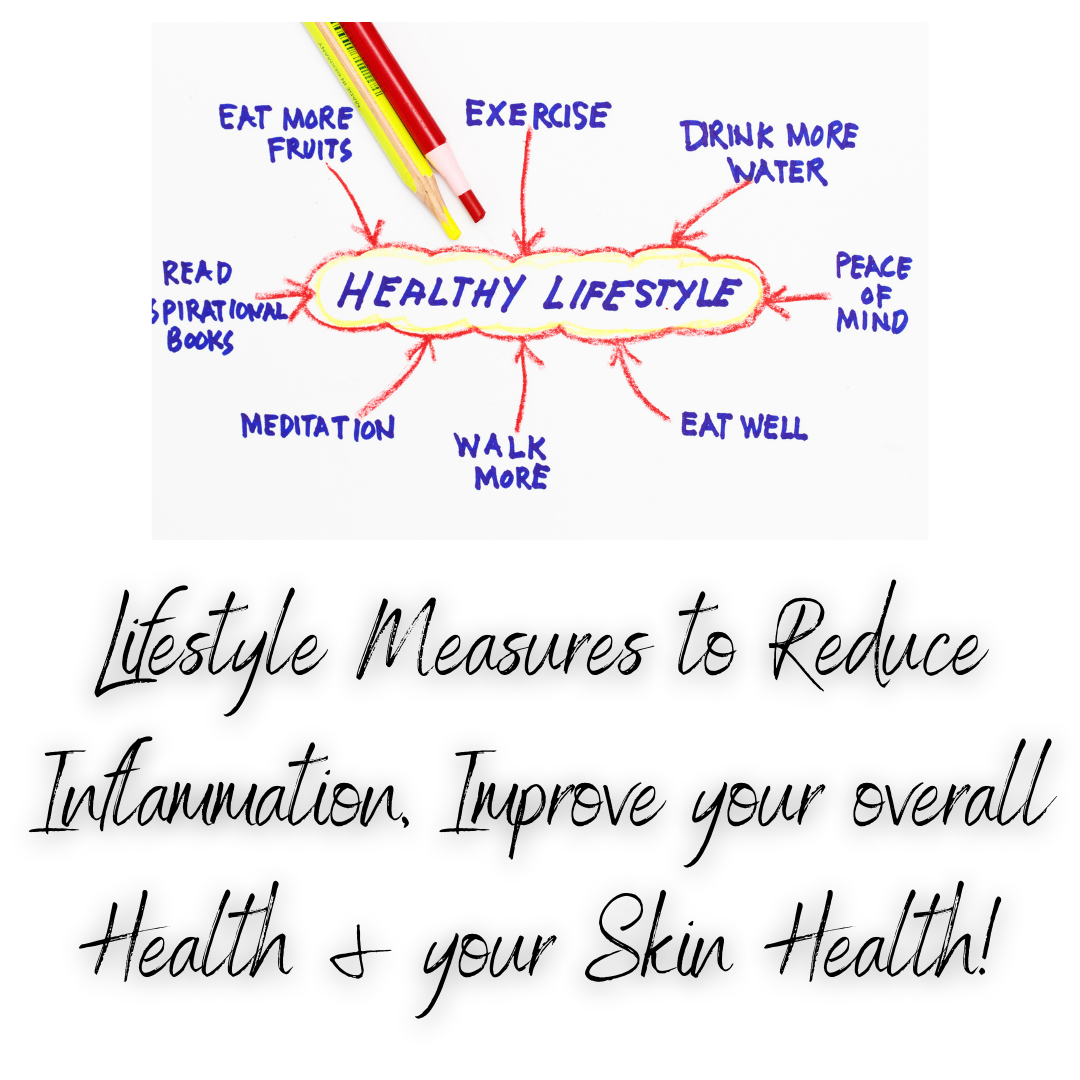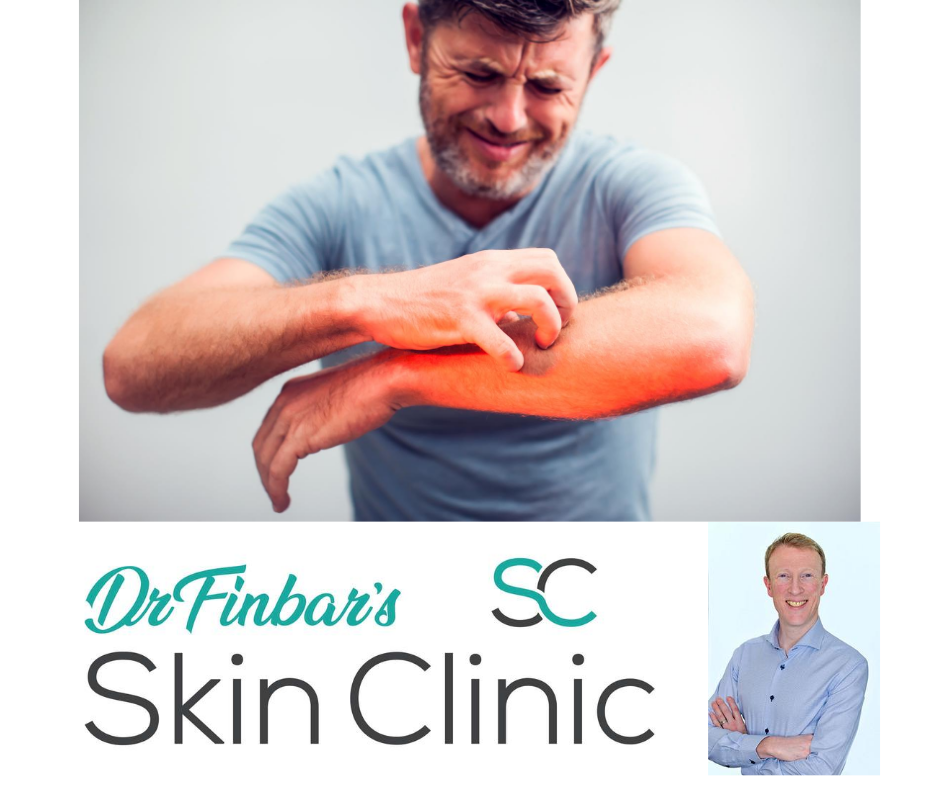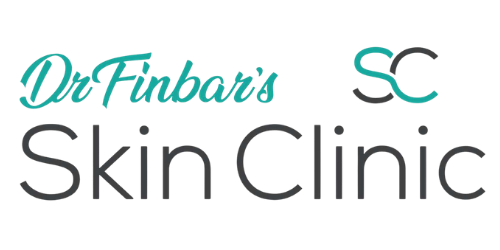Improved Sleep to Reduce Skin Inflammation
Jan 21
Introduction
Many inflammatory skin disorders e.g. acne, psoriasis, eczema and other autoimmune conditions can have a genetic contributing factor, but mainly our lifestyle and behaviours can contribute to and alter the course of these conditions. Many people get these conditions through no fault of their own, but there are other things in addition to medication that can reduce inflammation.
I generally give lifestyle advise to my patients who have inflammatory skin disorders. This includes:
- improving your diet,
- exercising regularly (accumulation of 30minutes a day moderate activity on most days of the week) and
- reduce stress in your life (relaxation techniques, meditation, addressing work life balance). Getting outdoors daily with natural light in the morning, walking in nature daily if possible and reducing exposure to electronic devices for 1-2 hours prior to bed (or using blue light blocking glasses).
However, this blog will concentrate on sleep. This information is not only helpful for inflammatory skin conditions, but also many other chronic diseases and avoiding them!

- Give high priority to quality sleep. Aim for 8-9 hours of sleep opportunity every night. At best you are likely to have 90% sleep efficiency, so 8 hours in bed would get you just over 7 hours 10 minutes sleep (7 hours in bed- just over 6 hours sleep)
- Get up at the same time every day. This is key to setting a regular bedtime. If you get up at the same time every day you will naturally fall into a regular bedtime.
- Keep the bedroom at a cool temperature. A cold shower or a warm bath at night before bed can aid getting over to sleep.
-
Get the light in your life right.
- Get at least 20 minutes of natural light early in the day if possible. In the winter months I use Luminette 2 wearable light therapy glasses for 20 minutes each morning to counteract the effects of Seasonal Affective Disorder (SAD). (Click to learn more about Luminette products)
- Avoid use of electronic devices in the 2 hours before bed; if you must, install a blue light filter.
- Consider blue blocking glasses 2 hours before bed (allows natural melatonin levels to rise). I have glasses from Trudark & BLUblox (I look daft but they really work!) Blue light reduces melatonin production and affects REM sleep.
- Remove any blue LED light in your bedroom (e.g. from chargers). Even small amounts can switch off your melatonin and interfere with sleep quality.
- Relax: have a routine where you can wind down before bed. This may include reading (not on electronic device), breathing exercises, visualisation, essential oils, stretches etc…
-
Avoid the wrong stimulants.
- Avoid hard training/ exercise within 3 hours before bed. I used to do a hard swim at 9pm one evening a week. It took me ages to get to sleep after and I was always wrecked the next day.
- Avoid eating a big meal or drinking too much fluid within 3 hours of bedtime.
- Avoid coffee (and other caffeinated products) after 2pm. (Hampers progression to Deep Sleep)
- Avoid/limit alcohol before bed; disrupts REM sleep. My Oura ring sleep tracker confirms lower Heart Rate Variability (bad) reduced sleep efficiency (bad) and reduced REM sleep (bad) if I drink more than 2 glasses wine (4 units). (Click here to read my blog on alcohol.)
- Do not use sleeping tablets. Don’t even ask for them! They are only effective in the very short term and quickly become addictive and cause other side effects such as falls and hangovers.
- If you can’t sleep, get up and leave the bedroom. Do something relaxing or boring for a while then try to go back to bed again.
What is sleep?
“Sleep is a normal physiological state in which there’s perceptual disengagement from the environment and unresponsiveness to the environment. It’s reversible, which is how it is differentiated from coma.” Dr Meeta Singh (1)
“Sleep is the foundation on which the other two health bastions sit (diet & exercise). Take away the bedrock of sleep, or weaken it just a little, and careful eating or physical exercise become less than effective…”,
“Sleep is probably the greatest legal enhancing performance drug that few athletes are abusing enough” Professor Matthew Walker (2)
Sleep cycles
Non Rapid eye movement (non-REM) sleep
- Stage 1 – Preparing to fall asleep/very light sleep, easily woken from
- Stage 2 – 50% total sleep time. Preparing for deep sleep.
-
Stage 3 – Deep Sleep. 20% total sleep time.
- Restoration & recovery part of sleep.
- Memories are stored and unnecessary information pruned out.
REM sleep 20-25% of sleep
This is the dreaming stage of sleep. It gives emotional context to our memories, supporting creativity and helping us make smart decisions. Most REM occurs in the second half of the night, after first 4 hours of sleep. Waking early or having low hours of sleep cuts shorts your REM sleep. REM sleep is essential to our health and athletic performance; so it’s important get the full 7-9 hours total sleep per night.
Click image above to purchase book from Amazon. As an Amazon Associate I earn from qualifying purchases.
Why We Sleep
In his book, ‘why we sleep’(2) Matthew Walker gives a detailed explanation on the different sleep stages, why we need sleep, and strategies for improving sleep. This book totally changed my opinion on the value of good quality sleep. Since reading this book I have taken many steps to improve the duration and quality of my sleep.
Since March 2019 I have been tracking my sleep quality with Oura Ring.(3) I’m going on the principle: What gets measured gets improved. I still have improvements to make, but I can identify times when my sleep has been poor and can identify potential causes e.g. work stress, alcohol, eating late at night etc.
Walker outlines the evidence of the significant health implications of not getting enough quality sleep, from increased risk of developing Alzheimer’s disease, cardiovascular disease, high blood pressure, renal failure, diabetes, obesity, mental health disorders, to a reduction in testosterone levels. It also lowers your immune system function, leaving you at increased risk of cancer and more vulnerable to infection and taking longer to recover.
A study showed how poor sleep for 6 days prior to getting the flu vaccine caused a 50% reduction in its effectiveness compared to those who had normal sleep in the days prior to vaccination. Reduction in sleep affects how our body repairs DNA effectively meaning we age at a faster rate than those who get good sleep.
As if all that weren’t enough, in the more short term, sleep deprivation caused more deaths and injury by accidents at work and on the roads; an Australian study showed how being awake for 19 hours led to cognitive impairment similar to the level of alcohol which would make you legally drunk and unable to drive!
We need consistent good quality sleep for growth and repair of our organs. The skin if no different. My own acne never really went away until I really concentrated in improving all my lifestyle factors in my late 30s, sleep diet & exercise. Its never too late!

Mental Health and Sleep
All mental health disorders are associated with abnormal sleep patterns. There had been a long-held view by psychiatrists that mental health disorders caused sleep disruption. However, it has been demonstrated that people without mental health problems can develop symptoms seen in mental health disorders by having their sleep disrupted; e.g. symptoms of depression or anxiety may cause sleep disturbance or may be caused by it.
How much sleep do I need?
The National Sleep Foundation (US) recommends 7-9 hours sleep per night for adults. The average adult is only getting around 6.5 hours per night. I’ve heard many people tell me they can get by on 6 or fewer hours of sleep without any problems… but this is like a smoker telling me they feel fine. Even if you feel ok, it is still a significant risk factor for all the conditions listed above.
Night owl, or morning lark?
Our circadian rhythm (circa = around, diem = day; circadian rhythm is a biological process that every plant and animal exhibits over the course of a day) naturally changes over the years. I remember when my kids were small, they would be awake very early. As they move into the early adolescent and teenage years, they wake later, when given the chance. My wife and I now are now awake first in the morning! This is a natural biological variation in our circadian rhythms during our life cycles.
Are we doing our children a disservice by waking them too early? It goes against their natural circadian rhythm. There is good evidence that exercise helps our kids learn, but waking too early (e.g. those 6am swims…) may be detrimental in the longer term.
Napping
If you need an energy boost or are finding it difficult to get the 7-9 hours sleep each night then a 20-30 minute power nap might be a great strategy if you have time. Best done around 1-3pm.
However, it’s not possible to bank sleep (i.e. get extra sleep to store in advance of when you might need it). It may be necessary to catch up on sleep after a period when you have not been able to sleep properly; but it can take 2-3 days to recover from even a single night of poor sleep.
I know what you’re thinking…
... I don't have time! I have work, kids, etc…
”Me too! but what can we do? The first thing is to be aware of it, then make increased sleep duration and sleep quality as much of a priority in your life.
“But I only need ‘5-6’ hours a night.” – in 1938, two scientists (Prof Nathaniel Kleitman & Bruce Richardson) spent 32 days in a dark cave with no contact with the outside world. Their bodies naturally adapted to a 24 hour (circadian) cycle with 9 hours of sleep each day. Other more recent studies have replicated this in people who claim to only need 5-6 hours sleep; when placed in laboratory conditions without distraction they revert to a 7-9 hour sleep cycle.
When you say I only need 5hours a night, what you are saying is 'I am so used to only get 5 hours sleep I night I forget what it's like to be fully rested'!
Other Great books to read:
Click image below to purchase book from Amazon. As an Amazon Associate I earn from qualifying purchases.
The Circadian Code describes our bodies natural flow from light to dark. How our hormones swing through the day and outlines lifestyle changes to help us get back on track!
I learned lots of useful things in the 'Power of When'. Things like what my specific chronotype is, the best for me to have coffee, eat lunch, get up, go to bed and much more:
References:
- Dr Meeta Singh, Service chief of sleep medicine, and section head and medical director at the Henry Ford sleep center in Michigan. https://meetasinghmd.com/accessed 22nd March 2020.
- Matthew Walker, professor of neuroscience and psychology and the director of the Centre for Human Sleep Science at the University of California. Walker Matthew, Why We Sleep, Penguin Books, 2018
- https://ouraring.com/ accessed 22nd March 2020.
Share this post on:
RECENT POSTS (click image)
-
My Story
29 October 2022
-
Acne
31 January 2021
-
Dietary Advice to Reduce Skin Inflammation
1 February 2021
-
Eczema
February 2021
-
UV / Sun Protection
March 2021
-
Rosacea
29 October 2022
-
Skin Cancer
29 October 2022
-
Psoriasis
29 October 2022
Sign up for my Free Newsletter Below:
SUBSCRIBE
Copyright © 2023 Dr Finbars' Skin Clinic All rights reserved.



